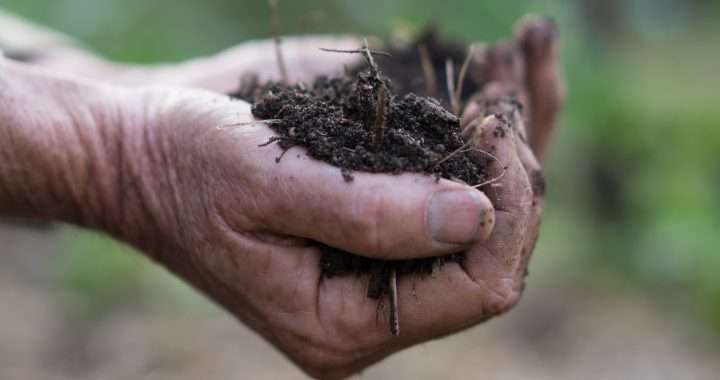
Understanding soil in your organic and biodynamic garden
Author : My Food Garden
Understanding soil is the key task in a successful organic and biodynamic garden. How do you get a grip on the importance of all the soil nutrients or grasp the complexity of the living process in the soil and then develop a rhythm of activity in the garden that enhances soil fertility? Its a big ask, even for the most experienced organic food grower.
I feel what sits at the core of understanding soil is appreciating that it is not all about material substance, despite what all the product sellers want you to think. What I mean by this is that soil is not only made up of matter such as: minerals and chemicals, but it is also includes life with a life energy that weaves through the soil, transforming it.
Soil life includes:
- Micro-organisms you can’t see ( billions of them in a handful of healthy soil),
- Life you can see when you dig, for example, worms and ants.
This life takes the material (sand, clay, organic matter, minerals, chemicals and nutrients) in the soil and through digestive processes, makes nutrients available to plants, balances soil, helps soil hold moisture and performs its alchemy by transforming substance into humus.
The chicken and the egg question is always a good one to ponder, which came first. The same question comes when you ponder soil life. Minerals placed into the soil are dead matter, so what is it that causes life to move into substance? Is it the composition of the substance? The answer is partly yes, but there is something else which is like the power source.
In biodynamic gardening practice, this power source is called the etheric field. It can also be called life force. All living things on earth have this life force, which can be seen with chromatography. This life force is effectively the switch that turns life on in the soil and it flows into the soil via oxygen. So in simple terms, you must have loose soil so oxygen from the atmosphere can penetrate. Life also needs moisture.
The vibrancy of soil life is also affected by formative forces (earth, air, water and fire) emanating from the cosmos. These forces enhance the quality of form and life in the garden and if you time your activities to optimise their application, you will surprised at the results, for example, by making your compost, planting your green manure or applying biodynamic horn manure to the soil on an earth sign during a descending moon, the soil life building process is improved.
Its important to mention the other non-physical ingredient which is the quintessential force in the garden, you. Your thinking and feeling drives the garden and you take on a big responsibility in caring for the amazing diversity of life in the garden. Love sits at the heart of this care, a certain feeling that all passionate gardeners with true green thumb possess.
By concentrating on the more non-physical aspects of understanding soil, I do not mean to dismiss a scientific way of looking at soil composition. This has great value, especially if you want a fast transformation of soil. However, it is certainly possible to get bogged down in such a process if you are not a scientist. Seeking help from people who know how to analyse soil from a scientific basis and then incorporate help in the practical management of the soil (getting your soil building rhythm consistent) and how to work with the more non-physical aspects of managing life in the garden, will give you a more complete picture.
Life is a mystery and being excited by the ever evolving mystery of the garden in understanding soil is fascinating.
PS: Come along to one of our Workshops or talk to us about our Coaching service.
Enjoy your digging – Authored by Peter Kearney – www.beta.myfoodgarden.com.au

